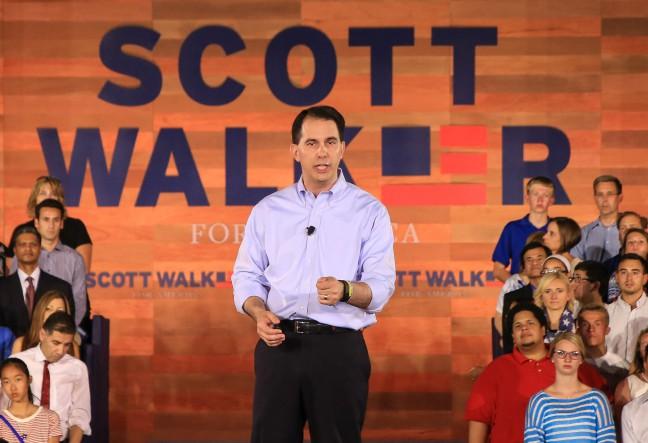Scott Walker recently joined a GOP redistricting group serving as the party’s data and legal epicenter in advance of the 2020 census. Former Gov. Walker, who narrowly lost the governorship to Tony Evers last November, is looking to get back into the political mix and help his party.
“For donors and activists — absolutely, there is not nearly the level of intensity right of center as there’s been on the far left,” Walker said of redistricting.
There is no question that this move from Walker is a way for him to stay relevant and position himself favorably among national donors as he thinks about his next political move. Logically thinking, if Walker hopes to run for Senate at some point, remaining involved with his party would prove a valuable asset to his resume.
The part of his comments I take issue with are his remarks about redistricting. Gerrymandering has plagued our political system and spread like a cancer. If we want to address redistricting, one of the most effective ways to do so would be to implement non-partisan, independent commissions to draw even lines.
Gerrymandering used to be considered one of those political games that went on behind the scenes. However, thanks to increased public awareness and accurate media coverage on its impact on hyper-partisanship, gerrymandering has been on the minds of more voters.
Independent commissions redrawing district lines nationwide would have numerous benefits. For starters, it could help ease partisan tensions between the two parties. A fair democracy is what every citizen should strive towards, regardless of party affiliation. Somewhere along the way, we have lost sight of this issue and allowed these problems to persist.
Gerrymandering undermines our elections in profound levels because politicians wield the power to create lines in their favor. But given the complexity of gerrymandering, backdoor policies that have stood the test of time and allowed unfavorable lines to be drawn, and the multitude of other problems we face as a nation, the urgency of addressing gerrymandering tends to slide in the pecking order.
Independent commissions would be utilizing good government policy and in theory would be a logical idea. Realistically, creating these independent commissions would be a political firestorm of its own, but given enough time and resources, especially given how passionate voters have become over this issue, it would not be an impossible task.
With that being said, I don’t believe the GOP fighting these redistricting issues will help their cause very much. Sure, they could eventually win and keep the lines in their favor, and that may help them for an election or two, but it is a very short-sighted goal to have in mind.
Independent voters are oftentimes independent because they are at odds with both parties. When the Democratic party brings up legitimate issues concerning how district lines are drawn, and members of the GOP are fighting to keep the lines as is, it will not bode well for them if they wish to attract more voters to their party.
As for Scott Walker, I’m sure he’ll make meaningful contributions and raise solid money to fight their cause. He’s had great success in his political career, and he’ll likely continue to succeed in this new role. Regardless, it is time for common sense to return to our political atmosphere. Once we tackle what should be simple issues, like fair districting lines, we as a society can focus on other more challenging issues.
Mitch Rogers (mrogers9@wisc.edu) is a senior majoring in economics.


